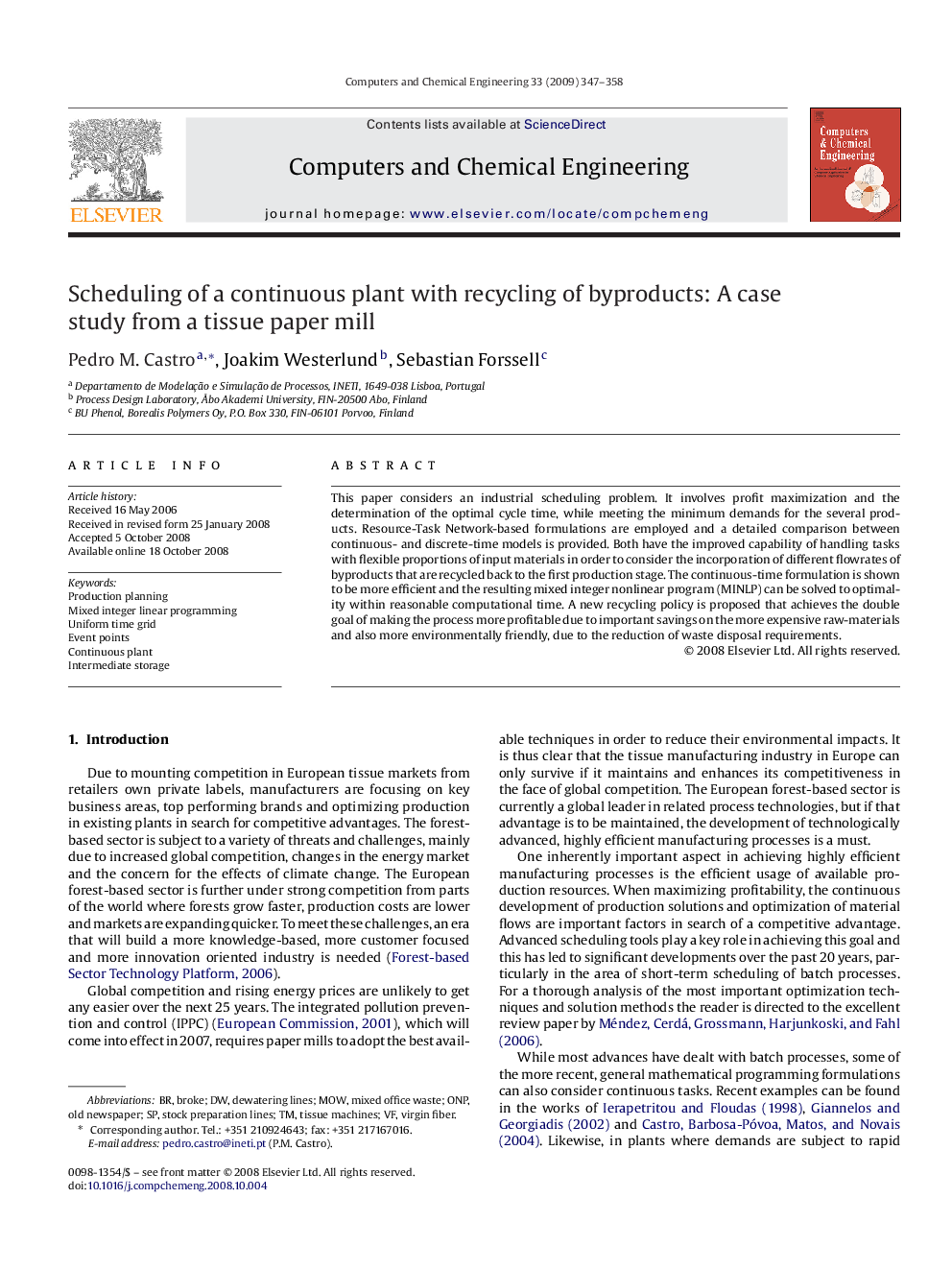| Article ID | Journal | Published Year | Pages | File Type |
|---|---|---|---|---|
| 173424 | Computers & Chemical Engineering | 2009 | 12 Pages |
This paper considers an industrial scheduling problem. It involves profit maximization and the determination of the optimal cycle time, while meeting the minimum demands for the several products. Resource-Task Network-based formulations are employed and a detailed comparison between continuous- and discrete-time models is provided. Both have the improved capability of handling tasks with flexible proportions of input materials in order to consider the incorporation of different flowrates of byproducts that are recycled back to the first production stage. The continuous-time formulation is shown to be more efficient and the resulting mixed integer nonlinear program (MINLP) can be solved to optimality within reasonable computational time. A new recycling policy is proposed that achieves the double goal of making the process more profitable due to important savings on the more expensive raw-materials and also more environmentally friendly, due to the reduction of waste disposal requirements.
